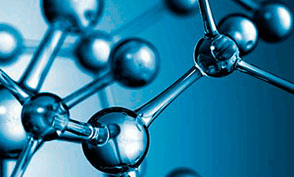
×
Biopolymers, the main components of animal connective tissues, are also the most abundant and widely distributed functional proteins in mammals, accounting for 25% to 30% of total proteins. It has a close relationship with tissue formation, maturation, intercellular information transfer, as well as joint lubrication, wound healing, calcification, blood clotting and aging.
It is widely used in medical materials, cosmetics, food industry, etc. Collagen (also known as collagen) is a structural protein of the extracellular matrix, the English name "collagen", evolved from the Greek, polysaccharide protein, white, containing a small amount of galactose and glucose, is the main component of the extracellular matrix (ECM), accounting for about 85% of the collagen fiber solids.
Mainly in the connective tissue of animals (bone, cartilage, skin, tendons, ligaments, etc.), accounting for 25% to 30% of the protein in mammals, equivalent to 6% of body weight. In many marine organisms, such as the skin of fish, it accounts for even more than 80% of their protein content. It plays a role in supporting, protecting, binding and forming isolation for the organism and organs. In addition to biomechanical aspects, it also has functions such as signal transduction and transport of growth factors and cytokines.
Animal tissues of livestock origin have been the main way to obtain natural collagen and its collagen peptides, but the occurrence of diseases such as mad cow disease (BSE), foot-and-mouth disease (FMD), and avian influenza have raised questions about the safety of animal collagen and its products from terrestrial mammals, and in addition the application of collagen derived from livestock has been limited in areas such as the Islamic faith. There is a gradual shift to the development of collagen from marine organisms. Although the European Food Safety Authority (EFSA) has confirmed that even collagen of animal bone origin is safe and free from the possibility of contracting mad cow disease and other related diseases.
The differences in amino acid composition and cross-linkage make the abundant collagen contained in aquatic animals, especially in their processing waste - skin, bone and scales, have many advantages that are not found in livestock collagen, such as certain gelation, high dispersibility, low viscosity, water absorption, water holding capacity and emulsification. In addition, it has been found that collagen from marine animals is significantly better than collagen from terrestrial animals in some aspects, such as low antigenicity, low allergenicity, low denaturation temperature, high solubility, and easy hydrolysis by proteases. Therefore, aquatic collagen may gradually replace terrestrial animal collagen.
The common types are type I, type II, type III, type V and type D. Collagen has good biocompatibility, biodegradability and biological activity, such as low antigenicity, easy absorption in the body, promotion of cell viability and growth, and promotion of platelet coagulation, etc. Marine-sourced collagen peptides are widely used in food, medicine, tissue engineering, cosmetics and other fields. They can be used not only as health food, beauty products and packaging materials, but also as food additives in meat improvement, frozen food, beverages, pastries and dairy products. In the medical field, collagen can be made into collagen sponge, collagen membrane, artificial skin, immobilized beauty enzyme carrier and capsule because of its low immunogenicity, fiber re-formation, strong mechanical properties and biodegradability.
As one of the professional collagen suppliers in China, SEMIX provides quality wholesale collagen peptides for customers all around the world. Feel free to contact us at any time!

+860573-87998299